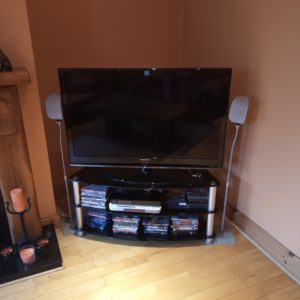The Way I Hear It A Life with Hearing Loss
Since hearing depends on these small blood vessels and nerves, researchers are increasingly convinced that diabetes can cause ear damage and hearing loss.
Research literature is limited regarding the effect of diabetes on hearing loss.
Nerve damage. High blood sugar can damage the nerves that send signals to your ears. A poor signal can limit your hearing or understanding of speech.
Keratin. People with diabetes may lack keratin, a protein that helps protect your ear canal. Too much or too little keratin can lead to hearing problems.
Tissue sensitivity. Diabetes might make your ear tissue overly sensitive. The plastic covered hearing aids might bother your ears. Wearing an aid can also limit air circulation, which could lead to more irritation or infection.
Hearing Problems
When your hearing is working normally, information is being passed through the different parts of the ear to the brain.
Outer ear or middle ear problems lead to inefficient transfer of sound.
The cochlea is still working but may not receive enough information. This type of hearing loss is called conductive hearing loss.
The problem is that the sound is not being conducted (transferred) well enough.
Noise-induced Hearing Loss
Noise-Induced Hearing Loss: Scientific Advances (Springer Handbook of Auditory Research)
Hearing damage from noise exposure typically occurs in a very restricted frequency range, creating a gap in the sequence of frequencies that can be heard.
The gap is usually in the high-frequency range, which can affect a person’s ability to understand speech.
However, noise damage can sometimes affect such a narrow frequency range that the person may not even be aware that he has hearing loss.
Age-related Hearing Loss
In general, vowels, which account for the loudness of speech, are in the low-frequency range, while consonants, which provide the clarity of speech, are in the high-frequency range.
Therefore, high-frequency hearing loss may not affect how loudly sounds are heard, but it can make speech less clear and, as a result, more difficult to understand.
This is especially the case when watching television or listening to the radio, where speech is often fast and where visual cues, such as lip movements and body language, are not as readily available, as well as in noisy situations.
Signs of Hearing Loss
Dictionary of British Sign Language: Compiled by the British Deaf Association
1.A hearing problem causes you to feel embarrassed when you meet new people.
2.You have difficulty hearing when someone speaks in a whisper.
3.A hearing problem frustrates you or triggers arguments when talking to family members.
4.A hearing problem causes you to attend public events or services less often than you would like.
5.Difficulty with your hearing limits or hampers your personal or social life.
6.A hearing problem causes you difficulty when dining in a restaurant.
7.You frequently ask people to repeat themself.
8.You have trouble hearing on the phone.
9.The TV is turned up very loud.
10.You seem to hear some things but not all (selective hearing).
11.Words sound dull or unclear.
12.You have trouble understanding conversations.
13.Music sounds metallic or tinny.
Decibel Loudness Comparison Chart
Silverline 633937 Sound Level Meter 50-126 dB
Painful
150 dB = fireworks at 3 feet
140 dB = firearms, jet engine
130 dB = jackhammer
120 dB = jet plane takeoff, siren
Extremely Loud
110 dB = maximum output of some MP3 players, model airplane, chain saw
106 dB = gas lawn mower, snow blower
100 dB = hand drill, pneumatic drill
90 dB = subway, passing motorcycle
Very Loud
80–90 dB = blow-dryer, kitchen blender, food processor
70 dB = busy traffic, vacuum cleaner, alarm clock
Moderate
60 dB = typical conversation, dishwasher, clothes dryer
50 dB = moderate rainfall
40 dB = quiet room
Faint
30 dB = whisper, quiet library
Current recommendations for people with diabetes do not include hearing tests but a yearly hearing test would provide an opportunity to monitor any changes in hearing that have occurred since the previous test and to determine whether those changes are greater than hearing changes typically expected with aging.
Eat a healthy diet, control portions and make exercise a part of every day.
Steering clear of other hearing loss risk factors such as smoking and working in loud occupations can help protect your ears as well.
If you have any information,questions, or feedback you would like to include in this webpage.
Please email momo19@diabetessupportsite.com or leave your comments below.





I was amazed to learn from you article people with diabetes has a higher risk of hearing problems, I never knew the two were connected. Diabetes is becoming way too common in the world today, you are doing a fine thing educating people on diabetes and hearing problems. Very good information, I enjoyed my visit on your website very much.
Its great you enjoyed reading this article and thanks for leaving a comment.
The aim of this website is to provide education for people with diabetes to improve their knowledge, skills and confidence, enabling them to take increasing control of their own condition and integrate effective self-management into their daily lives.
I think education and knowledge can significantly improve quality of life.
Hi Momo, Loved this article!
I have a family member who suffers from diabetes and she would love to read this, I shall recommend it to her, well done!
Nice analgy’s and diagram/videos you put in the site, really helps to solidify your points here, so good job with that!
I have minor tinnitus in my left ear so I can fully relate to some of the hearing problems!
Kind regards,
Mark
Hi Mark,
Thanks so much for the positive comments about this article.
I hope your family member with diabetes finds this information helpful and you also found the post a useful resource for your hearing problems!